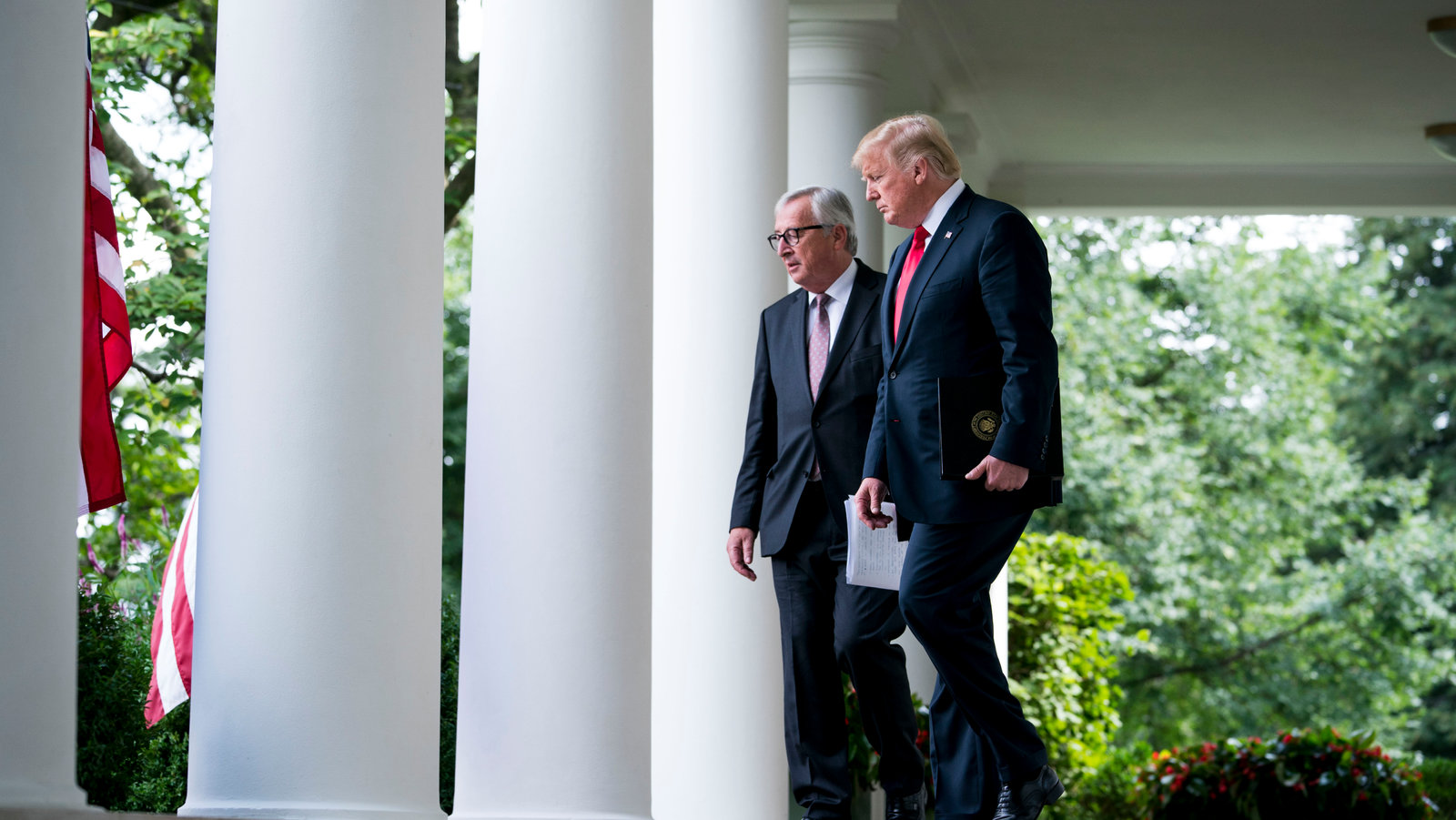Why Did Trump Attack European Trade? A Deep Dive Into His Rationale

Table of Contents
"America First" Economic Nationalism and the Rebalancing of Trade
At the core of Trump's trade policies lay the "America First" doctrine. This philosophy prioritized domestic interests above international cooperation, viewing trade imbalances as a zero-sum game where one nation's gain necessarily meant another's loss. This fundamentally reshaped US trade relations, particularly with Europe.
- Specific Trade Actions: The steel and aluminum tariffs were not isolated incidents. Trump also threatened tariffs on European automobiles, leveraging trade as a tool to negotiate favorable deals.
- Bilateral Trade Deficits: A central focus was reducing bilateral trade deficits—the difference between a nation's imports and exports with a specific trading partner. Trump perceived these deficits as evidence of unfair trade practices, harming American workers.
- Economic Nationalism and American Workers: The belief underpinning these actions was that trade imbalances led to job losses in the US and the hollowing out of American industries. This resonated with a segment of the population who felt left behind by globalization.
National Security Concerns as a Justification for Trade Actions
Trump frequently invoked national security concerns to justify his trade actions against Europe. This argument positioned certain industries, deemed critical for national defense, as requiring protection from foreign competition.
- Industries Cited: The steel industry, crucial for infrastructure and defense applications, was a prime example. Arguments were made that reliance on foreign steel compromised US national security.
- Legitimacy and Debate: The application of national security exceptions to trade rules sparked considerable debate. Critics argued that the invocation of national security was overly broad and lacked transparency.
- WTO Challenges: Trump’s actions frequently challenged the rules-based system of the World Trade Organization (WTO), leading to disputes and retaliatory measures from the EU and other trading partners.
Campaign Promises and Political Considerations
Trump's campaign rhetoric heavily featured promises to renegotiate unfair trade deals and protect American jobs. These pledges resonated strongly with his electoral base and significantly influenced his subsequent trade policies.
- Campaign Promises and Political Support: Fulfilling these promises helped consolidate his political support, particularly among working-class voters who felt marginalized by global trade.
- Domestic Political Pressures: Lobbying efforts from specific industries and pressure from certain political constituencies also played a role in shaping his trade agenda.
- Populist Sentiment: Trump's trade approach tapped into a broader populist sentiment, emphasizing a rejection of established political and economic elites and a desire for greater national sovereignty.
The Impact of Trump's Trade Policies on the European Union
Trump's trade actions inflicted substantial economic damage on various European industries. The EU responded with retaliatory tariffs and diplomatic efforts to de-escalate tensions.
- Economic Consequences for European Industries: Tariffs on steel and aluminum significantly impacted European producers, leading to job losses and reduced competitiveness in some sectors.
- EU Response: The EU imposed retaliatory tariffs on US goods, creating a tit-for-tat trade war that disrupted transatlantic commerce.
- Long-Term Implications for Transatlantic Relations: The damage to transatlantic trust and cooperation extended beyond purely economic impacts, straining relationships between the US and its European allies.
- Impact on Global Trade: Trump’s actions undermined the multilateral trading system, raising concerns about the stability of global trade governance.
Understanding Why Trump Attacked European Trade: A Summary and Call to Action
In conclusion, Trump's attack on European trade stemmed from a complex interplay of factors. "America First" economic nationalism, national security concerns (sometimes tenuously linked), and the fulfillment of key campaign promises all contributed to his aggressive trade policies. These actions significantly impacted the transatlantic relationship and the global trading system. Understanding why Trump attacked European trade requires a nuanced examination of these interwoven motivations. Continue your exploration of this complex issue by [linking to relevant resources on trade policy and US-EU relations].

Featured Posts
-
 The Hunger Games A Live Journal Retrospective Ohnotheydidnt Posts
May 26, 2025
The Hunger Games A Live Journal Retrospective Ohnotheydidnt Posts
May 26, 2025 -
 The Skinny Jab Revolution Black 47 And Roosters Your Top Streaming Choices Today
May 26, 2025
The Skinny Jab Revolution Black 47 And Roosters Your Top Streaming Choices Today
May 26, 2025 -
 The Meaning Of Dc Black Pride Culture Protest And Celebration
May 26, 2025
The Meaning Of Dc Black Pride Culture Protest And Celebration
May 26, 2025 -
 Proces Marine Le Pen Decision D Appel Apres Condamnation Pour Ineligibilite
May 26, 2025
Proces Marine Le Pen Decision D Appel Apres Condamnation Pour Ineligibilite
May 26, 2025 -
 Best Office Chairs For 2025 Ergonomic And Affordable Options
May 26, 2025
Best Office Chairs For 2025 Ergonomic And Affordable Options
May 26, 2025
